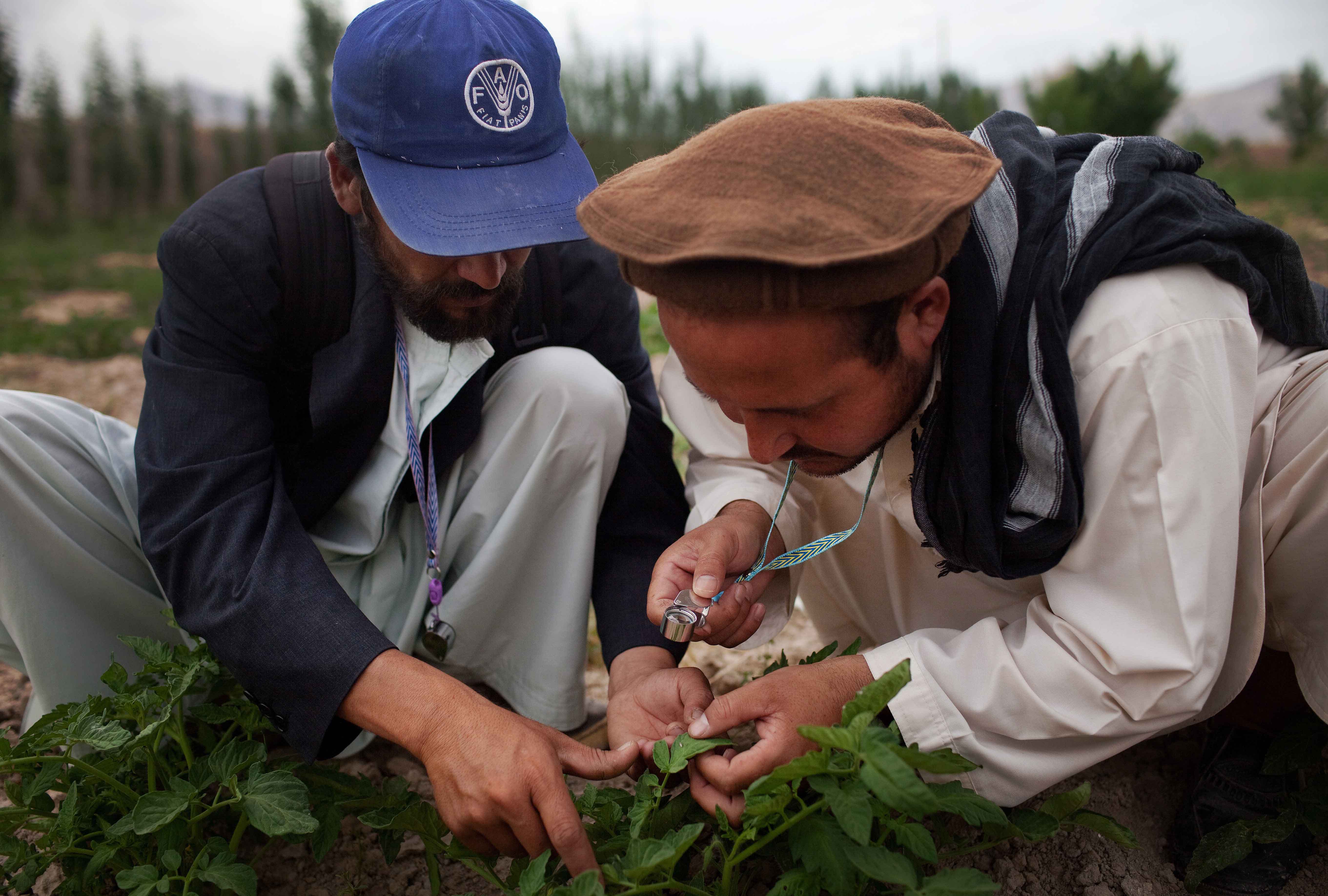
In 2010, FAO highlighted the dramatic impact of protracted crises on food security and nutrition in 22 countries. West Asia and Africa have the majority of countries suffering from such crises, most heavily affecting the poor in rural areas and in particular vulnerable women and children.
Partners in GFAR identified re-launching agricultural innovation and rehabilitating agricultural research for development during and after such crises as fundamental to enduring solutions to hunger and malnutrition. This is reflected as an outcome area in the GFAR MTP coming out of GCARD2.
Seeking solutions, IFAD, IFPRI and the CGIAR Research Program on Policies, Institutions and Markets jointly held a workshop on “Enhancing resilience to conflict in Arab countries through research and Arab Spatial 2.0” on 16 January 2014. The presentation of research led by the CGIAR team demonstrated the direct relationship between food insecurity and conflict in these countries. Egypt, Somalia, Sudan and Yemen were highlighted as examples showing diversity of origins, causes and solutions. The speakers and representatives from countries most directly concerned stressed the policies needed for improving food security and the value of better quality and availability of information for decision-makers.
Thomas Price, GFAR Secretariat Senior Officer, participated in the workshop recalling the overall attention in recent years of the CGIAR and other research institutions to protracted crisis situations. For West Asia and North Africa, AARINENA and ICARDA now aim to build on the commitments of the Kigali Movement launched in 2012 with institutions jointly calling to pool expertise and resources at regional and global level. In 2005, ICARDA emphasised the unique contribution of research to address the fundamentals behind stress and violence in the study Healing Wounds on rebuilding agriculture in countries affected by conflicts and natural disasters. It called for renewed ways of working to partner with local institutions, restore community bonds and restart the small-scale private sector.
GFAR has recently been asked by the Government of Palestine to help bring together actions through ICARDA, AARINENA, FAO, and expertise from outside the region, in rebuilding and reshaping the national agricultural research system.
As a principal sponsor in Kigali, FARA noted that the majority of countries in protracted crisis situations are in Africa. In spite of the evidence of its impact, investment in agriculture and related research has generally remained low and even declined in some countries. This is the case in spite of the common and growing recognition of the continuing importance of agriculture for African economies and as a source of social stability and employment.
GFAR has championed addressing the important, immediate needs of countries in protracted crisis at GCARD2, at the Africa Agriculture Science Week Session on Farmers’ Rights and Protracted Crises and at a High Level Expert Forum on addressing food insecurity in countries in protracted crises of the Committee on World Food Security (CFS). GFAR plays a unique role to convene all parties most affected by such crises to exchange information, initiate collaboration and conduct joint actions.
At policy level, GFAR is building on this momentum with FAO to contribute to the CFS Agenda for Action for addressing food insecurity in protracted crises. Endorsing the Agenda and initiating a set of immediate actions will be the focus for governments and their partners in 2014.
Photo credit: ©FAO/Danfung Dennis
